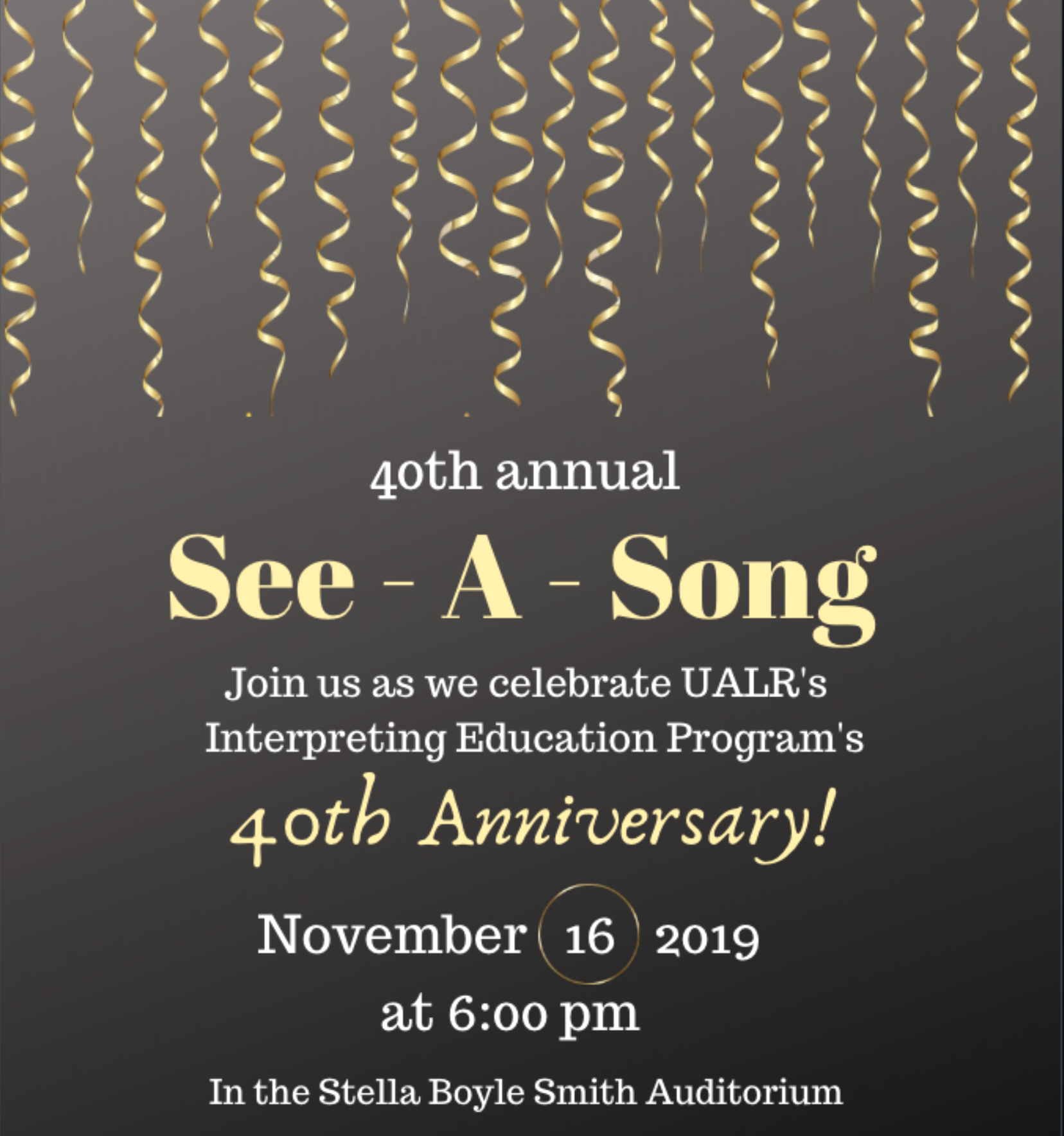UA Little Rock celebrates 40 years of interpreter education with ‘See-a-Song’ Nov. 16
The UA Little Rock Interpreter Education Program will present “See-a-Song,” an interpreted musical performance 6 p.m. Nov. 16, in the Stella Boyle Smith Concert Hall in the Fine Arts Building. The free event is open to the public and family friendly.
Each semester, students in the program’s Artistic Interpreting class sponsor See-a-Song as a public performance of songs presented in sign language. As part of this 40th anniversary of the program, past and current faculty and community supporters will be recognized and honored.
“The Interpreter Education Program is supported by the deaf community and the interpreting and business communities through teaching, mentoring, internships, and immersion experiences that enhance and expand the education our students receive in the classroom,” Program Coordinator Linda Stauffer said. “For this, we are very grateful.”
UA Little Rock’s interpreter program develops professionals who provide linguistic and cultural mediation between individuals who are hearing and individuals who are deaf, deaf-blind, or hard of hearing. The program includes second language learning, foundations in deafness, deaf-blindness, deaf culture, and beginning to advanced methods in interpretation. The program offers an associate’s degree in ASL studies, a bachelor’s degree in interpretation, and a minor for non-majors.
“We are the only program in Arkansas and one of only 15 accredited bachelor’s programs in the country,” Stauffer said. “Our graduates are working across the United States, especially here in Arkansas. We are very proud of the accomplishments of our students and alumni!”
The UA Little Rock Interpreter Education Program is one of the longest continuous academic degree programs in the country preparing interpreters to provide linguistic access for persons who are deaf, deaf-blind, or hard of hearing in their daily life and work.
